
OR
THURSDAY TALK
'Left alliance bound by democratic norms, no question of dictatorship'
Published On: October 26, 2017 01:00 AM NPT By: Hari Roka
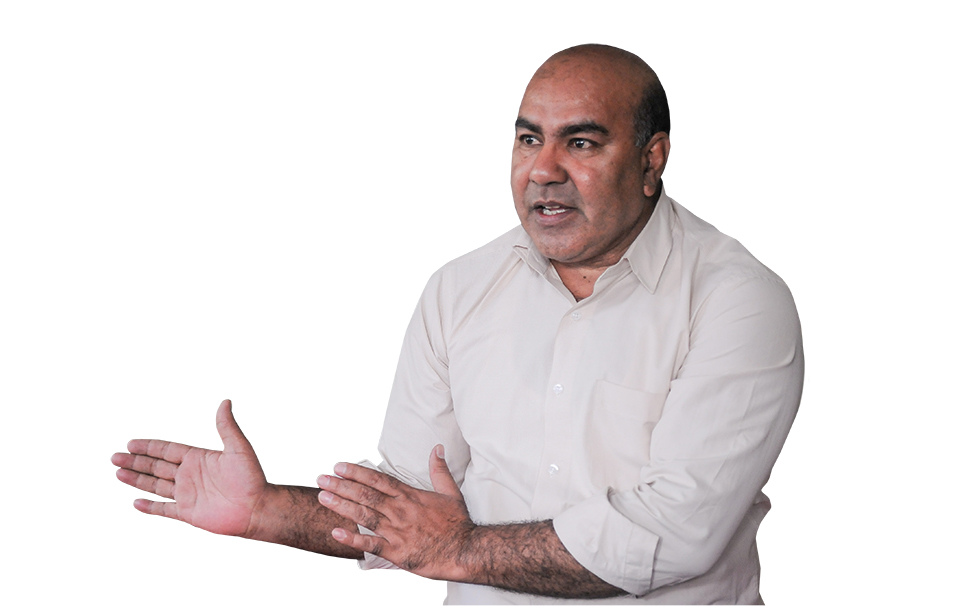
Political analyst Hari Roka is all for the new left alliance, which he thinks will help to clearly demarcate the leftist and rightist forces in Nepali politics. The one-time Maoist lawmaker shared his insights on the new alliance and its electoral prospects with Mahabir Paudyal and Prashant Lamichhane.
There has been a lot of debate on the new left alliance. What, in your view, brought the two major communist parties together?
I think this is the result of the aspirations of cadres on the ground. Left voters were eager to see their parties stand together to push the common cause. Since 1992, whenever leftist forces have been in discord, Nepali Congress has ruled. So the realization that communists can form a stable government only when they unite must have led to the alliance. There are some ideological aspects as well. We have only seen opportunistic alliances so far. The one between Nepali Congress and CPN-UML after the second Constituent Assembly elections was one such alliance. Nowhere else do the first and second largest parties in parliament form a coalition government. This happened in Nepal. This was against the norms and values of parliamentary system.
If like-minded forces come together under one umbrella, it would help them bring common minimum programs and go to the people. But this is not what we have seen. Parties formed alliance after the election to form government, which led to frequent government changes and opportunistic alliances. The vicious cycle continued. Politics, it seemed, had nothing new to offer. It had become stagnant. This could also have been the push factor for leftist alliance.
But many are skeptical that the left alliance will last.
It would be too early to say how long this alliance will last. It all depends on what type of common minimum program they bring, the issues they incorporate in common election manifesto and so on. It will also depend on the type of leaders who will be elected and how the two parties manage portfolios for their respective leaders.
UML and Maoist Center behaved like arch-rivals until recently. It might take them time to accept each other as friends in need. Besides, it will also depend on how people vote. Will UML cadres vote for Maoist leaders? And will Maoist cadres vote for UML leaders? How comfortable will they feel doing so? Will there be uniformity in voting pattern? These factors will determine how long they will be able to go together. Leftist forces secured 63 percent of votes in the first Constituent Assembly elections. In the second CA, UML and Maoist got only around 59 percent of votes. If this pattern and the leftist spirit remain intact, leftist forces together could garner as much as 70 percent votes. But if the parties fail to preserve this vote bank, or if dissatisfied cadres start voting for opposition forces, this percentage could come down drastically and ultimately even imperil the alliance.
In terms of policies, Nepali Congress, UML and Maoist Center have been quiet similar. What makes left alliance different?
In terms of health, education, job creation and other vital national issues none of the three big parties adopted policies that actually benefitted common people. This is precisely why new polarization was inevitable. Lack of differences among these parties promoted opportunistic alliances I talked about earlier. Everywhere else, politics is divided in two stark camps. There is conservative bloc, which advocates for free market, minimalist government, minimum role of state on public welfare, and greater role of corporate sector. And then there is a left bloc which seeks greater role of the state in regulating the market, wants the state to take up responsibility for basic health and education services to the people at affordable cost, and which advocates for public participation in production and capital formation.
But we don’t see such clear demarcation in Nepali politics, do we?
We don’t and there is where the problem lies. Post-1990, Ram Sharan Mahat as vice-chairman of National Planning Commission and Mahesh Acharya as state minister of finance introduced market economy, liberalization and privatization. This was almost wholeheartedly accepted by UML and Maoist party. UML added some welfare programs like social security allowance and social justice in Congress model. In terms of economy, UML and Maoist followed the economic model of Congress. This was wrong. As leftist forces, their focus should have been social justice, affordable health care and education, job creation and the environment whereby even the poorest of the poor have access to food. They should have brought policies whereby Nepali people do not have to leave the country just to sustain their livelihood.
What is the guarantee that the left alliance will depart from Congress model?
The building of a left alliance in itself does not signal a departure from conservative state policies. Things will be clear when they unveil their common minimum program. But if they cannot make a clear departure from Congress on these matters and shift to socialist programs from existing economic policies, the left bloc will be no different to the bloc Nepali Congress represents. If they fail to do so their own existence will be in danger.
What are the chances of the alliance falling apart after the elections?
I don’t think it will be easy for either UML or Maoist Center to break this alliance. Slowly this alliance will bind the leaders of the two parties. When you have declared that you are ideologically different from rightist forces and thus you will chart your course differently, if you again deviate, it will not give a positive message. Besides, these parties are not facing dumb voters. People will question when they deviate from the socialist model they have owned up.
Politics has become costly. It is hard to garner enough economic resources to run the parties. They have turned politics into a profit-making enterprise. This is the result of erosion of political norms, values and ideologies. Politics cannot thus continue indefinitely.
Worldwide, there has been emergence of leftist and rightist politics. Look at the Democratic and Republican polarization in the US. Look at the emergence of leftist forces in Latin America. There is either left or right bloc in politics, and no other space. So the parties are forced to choose one. If the leftist forces cannot stay true to this alliance, others will occupy this space. All communist leaders—from Pushpa Lal Shrestha to Mana Mohan Adhikari to Mohan Bikram Singh to Madan Bhandari to Pushpa Kamal Dahal—have risen to prominence from the left space. Likewise, anti-communist voters will always stand with rightist or democratic forces. This has been the pattern since 1990s. Today Nepali politics has come back on track. So we have either democratic right or socialist left.
Congress leaders argue that leftist forces are colluding to establish dictatorship of the proletariat.
This interpretation is wrong. No political force in Nepal has risen up after winning the battle against the establishment. Congress emerged in 1950 out of compromise, Nepali Congress and UML did so in 1990 and Maoists did so in 2007. In a way history of Nepali politics is the history of compromise. Only the party that emerges as unchallenged power may impose dictatorship, if it all.
The left alliance is not talking about rising to power through force. It is going to the people to seek their mandate. If together, they secure 67 percent seats they may change certain policies through constitutional amendment. What kind of amendment they push will also depend on who gets elected. If the leaders of business and corporate interests become dominant in the left alliance the kind of socialist policy I am talking about may not materialize. But like I said, if the left alliance deviates from core socialist agendas, they will become irrelevant in no time. Some other forces will emerge to occupy this space.
Whoever emerges victorious, left or right, will be democratically elected. And they will have to abide by constitutional provisions. Our constitution has envisioned creating bases of socialism. The new power that will emerge will have to deal with, take into confidence and address the concerns of both India and China as well. This is our geopolitical compulsion. Besides, our society is a questioning society. It won’t unquestionably support any policies. These factors will not allow the emergence of totalitarian or authoritarian forces.
Yet if the left alliance emerges as the largest force, it will have to immediately work on certain fronts. It will have to ensure access to common people to means of production, bring pro-poor policies, and avail affordable health and education services to common people. It will have to create jobs. And the state will have to intervene to certain extent to make this happen instead of relying on private sector. To make this happen, it will have to make a significant departure from existing model of economy.
Why then is there such a high level of suspicion about Nepali communists?
Because they are not committed to socialism. What they describe as liberalism has so far concentrated powers only in the hands of elites. Our democracy is elite democracy. Let me give you an example. Eighty percent of cheap loan disbursed by around 300 top banks and financial institutions goes to 300 families, depriving this facility to the rest of 5,600,000 households. This is elite capture. A common man cannot benefit from these institutions. A handful of elites have captured our means of production. The elites have entrenched a totalitarian system of their own. But they defend this system as a democracy. And when something is done to delegate more power to the working class, the same people call it dictatorship of the proletariat. We need to be able to see through these contradictions. So the interpretation that leftist alliance will bring back dictatorship is an elite construct. This undermines the norms of equality and social justice. The constitution has guaranteed periodic elections. Every five years, new parties will be elected to form the government. No party that fails to address the basic rights of people will be able to rise to power. Where do you see the possibility of dictatorship here?
Nepali communists want to be known as communists and at the same time they want the world to understand them as socialists. How do you explain this contradiction?
This is the result of self-inflicted fear of communist leaders. Socialism is never about one party dictatorship. Nepali left leaders have struggled for democracy no less than have Congress leaders.
After the collapse of Soviet Union and erosion of socialism in Eastern Europe, communists turned defensive the world over. This was also seen in Nepal. But the global order is slowly shifting. China is rising. Communists are being democratically elected in a number of Latin American countries. The debate of right and left has reemerged in Europe. This is boosting the morale of world’s communists. Nepali communists need not be defensive anymore.
People here have little knowledge about communism. Communism is about allowing the working class people to live with dignity, allowing them to exercise democratic rights, giving them quality health care and education services the rich now enjoy. Is this is a sin or a crime? So why should anyone hesitate to call himself a communist if he fully believes in this philosophy?
How do you think the left alliance will influence election outcomes?
Much depends on how long the alliance will be sustained and in what form. It depends on what kind of programs they include in their election manifesto, whether they will be able to reach out to the people with those agendas. I have found that left unity has sent positive message at the grassroots level. If the communist spirit has not eroded at the grassroots people are likely to welcome the left alliance. If the existing communist vote pattern remains intact, it should be able to secure a comfortable majority.
You May Like This

Left Alliance outweigh Democratic Alliance at Baitadi
KATHMANDU, Dec 8: Candidates of Left Alliance have outweighed democratic alliance candidates in both House of Representatives and Provincial Assembly... Read More...

NC to remain unaffected by left alliance, Minister Pradhan says
KATHMANDU, Oct 14: Defense Minister Bhimsen Das Pradhan has said that the country should have only two political parties i.e.... Read More...

Democratic alliance essential to check leftist alliance: Leaders
KATHMANDU, Oct 5: Leaders from various political parties have said the alliance among the democratic forces was essential to check... Read More...





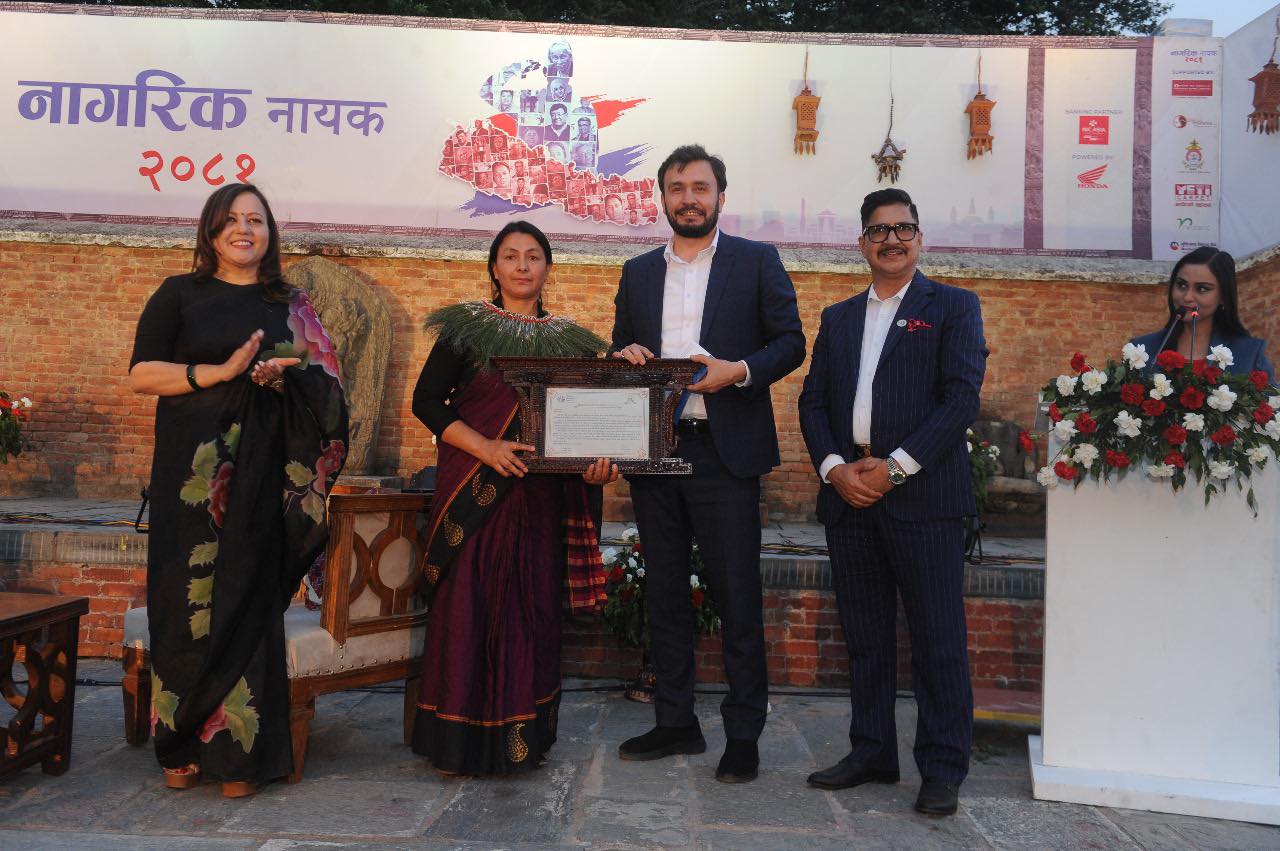
Just In
- Nepalgunj ICP handed over to Nepal, to come into operation from May 8
- Nepal to gift two elephants to Qatar during Emir's state visit
- NUP Chair Shrestha: Resham Chaudhary, convicted in Tikapur murder case, ineligible for party membership
- Dr Ram Kantha Makaju Shrestha: A visionary leader transforming healthcare in Nepal
- Let us present practical projects, not 'wish list': PM Dahal
- President Paudel requests Emir of Qatar to initiate release of Bipin Joshi
- Emir of Qatar and President Paudel hold discussions at Sheetal Niwas
- Devi Khadka: The champion of sexual violence victims



_20240423174443.jpg)





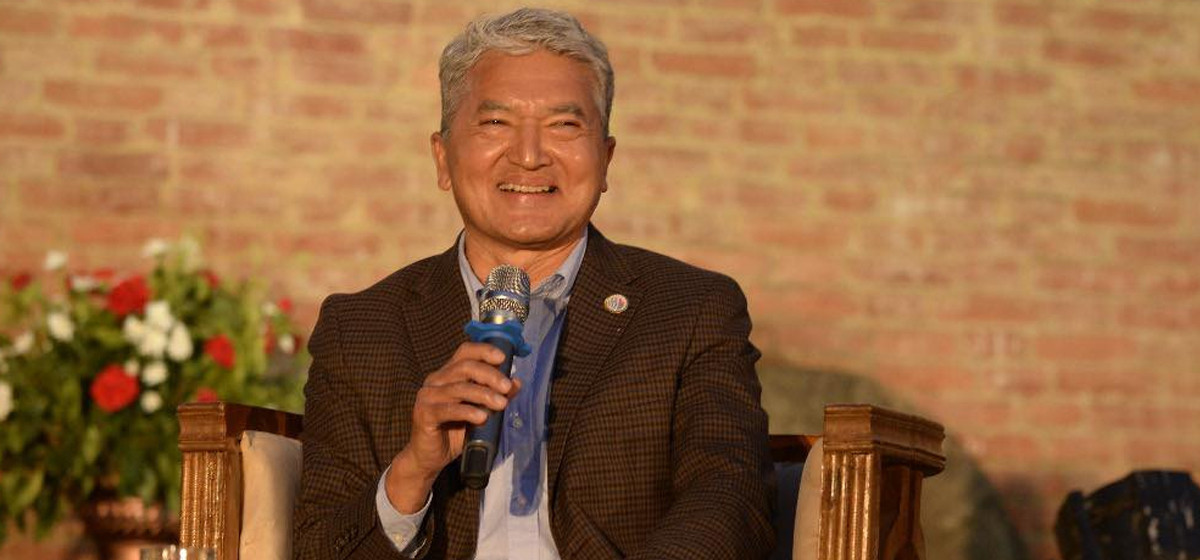
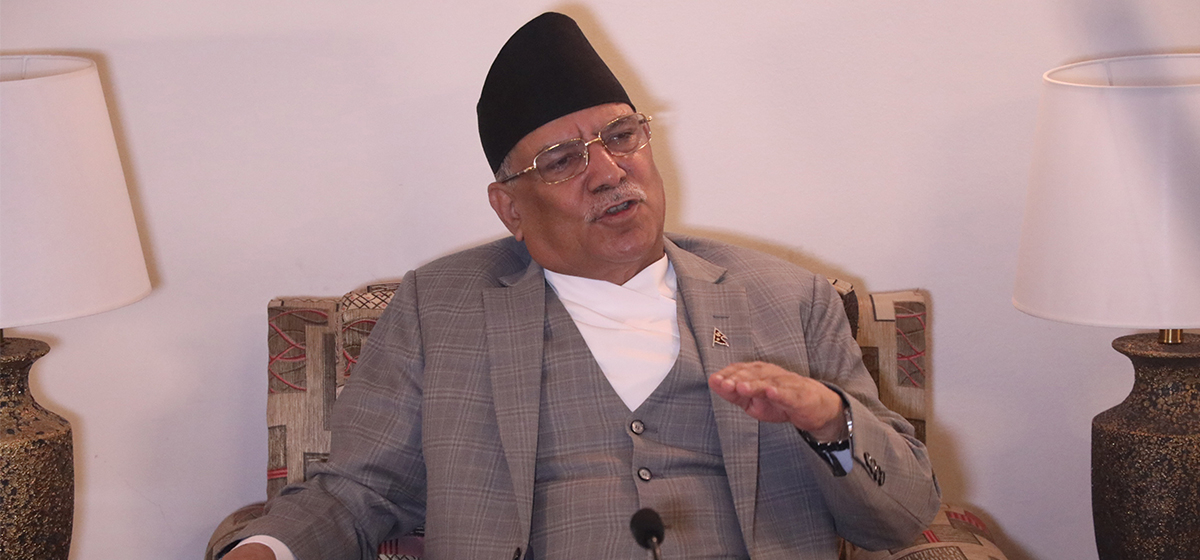

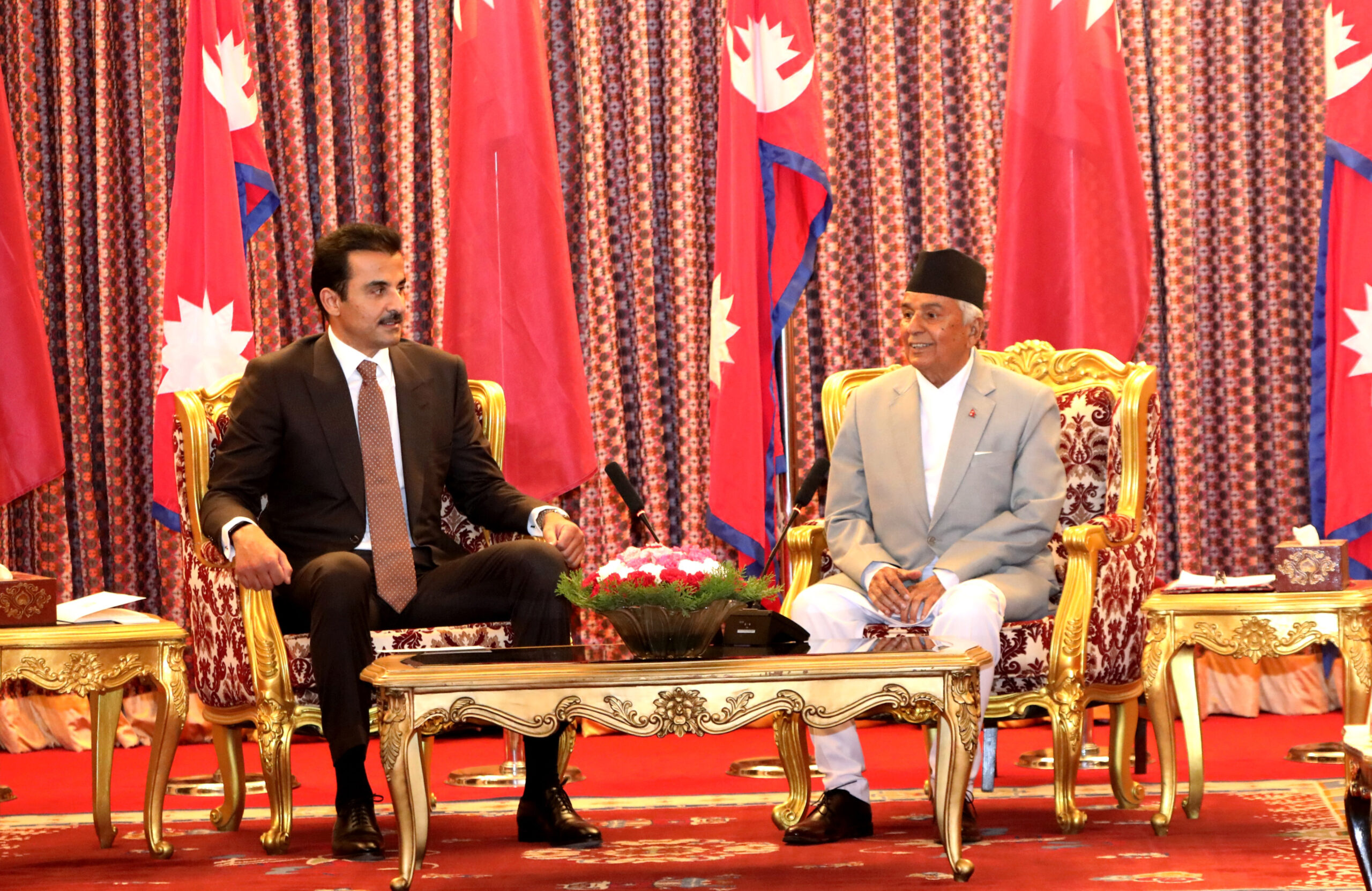
Leave A Comment